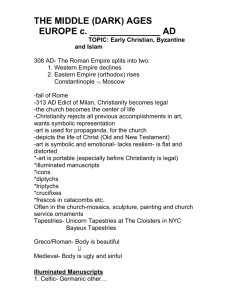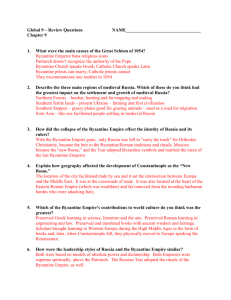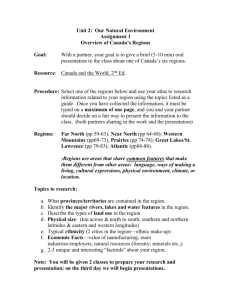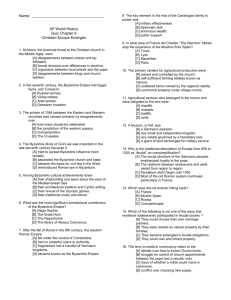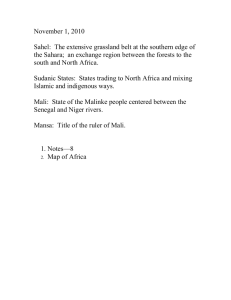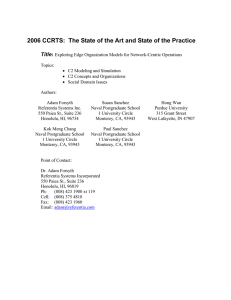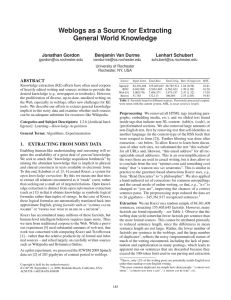Name
advertisement
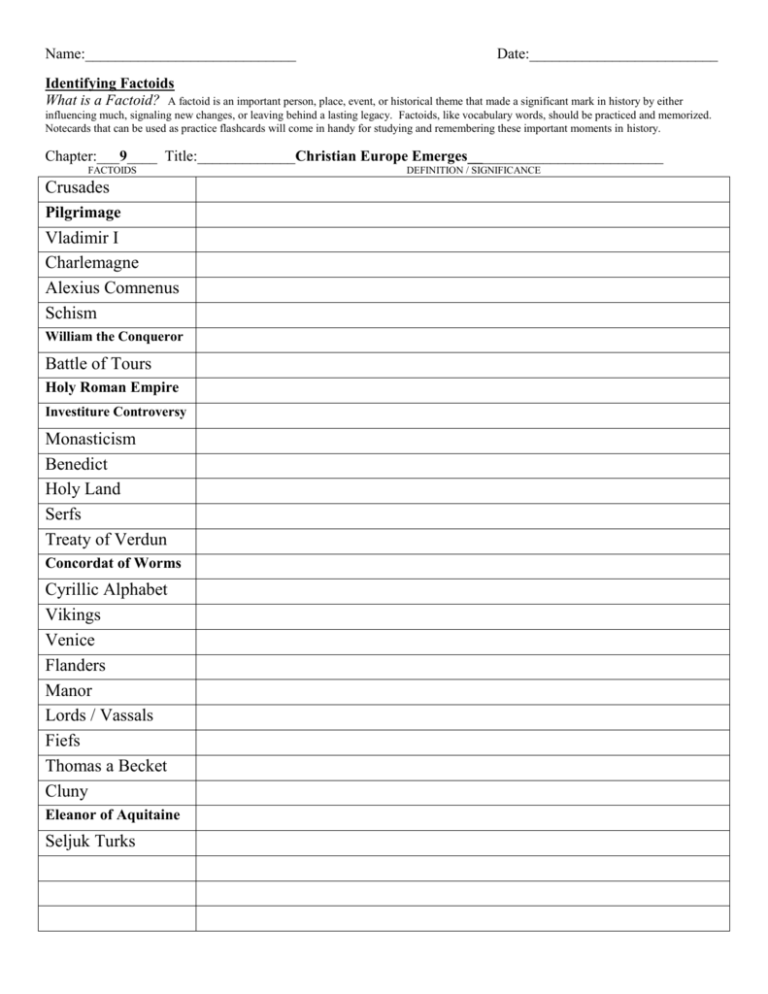
Name:____________________________ Date:_________________________ Identifying Factoids What is a Factoid? A factoid is an important person, place, event, or historical theme that made a significant mark in history by either influencing much, signaling new changes, or leaving behind a lasting legacy. Factoids, like vocabulary words, should be practiced and memorized. Notecards that can be used as practice flashcards will come in handy for studying and remembering these important moments in history. Chapter:___9____ Title:_____________Christian Europe Emerges__________________________ FACTOIDS Crusades Pilgrimage Vladimir I Charlemagne Alexius Comnenus Schism William the Conqueror Battle of Tours Holy Roman Empire Investiture Controversy Monasticism Benedict Holy Land Serfs Treaty of Verdun Concordat of Worms Cyrillic Alphabet Vikings Venice Flanders Manor Lords / Vassals Fiefs Thomas a Becket Cluny Eleanor of Aquitaine Seljuk Turks DEFINITION / SIGNIFICANCE Name:____________________________ Date:_________________________ Identifying Periodization What is a Timeline? A timeline is the plotting of events throughout the span of time in chronological order of their occurrence. Historians often utilize timelines to explain trends, patterns, eras, or changes in human interaction over the centuries. It will become very important to use time as a tool to understanding change. Any important dates or periods of time that show significance or influence should be recorded. Chapter:___9____ Title:_____________Christian Europe Emerges__________________________ DATE(S) SUBJECT / SIGNIFICANCE 480 CE – 547 CE Life of Benedict of Nursia 500’s CE Dark Ages (Decline in urban society in west) 527 CE – 565 CE Rule of Byzantine emperor Justinian 634 CE – 650 CE Byzantine territorial losses to Muslims (Egypt/Syria/Tunisia) 711 CE Arabs/Berbers conquer Spain 732 CE Battle of Tours stops Muslim advance into Europe 793 CE Vikings attack & plunder English coast 800 CE – 1000 CE Viking settlements of Iceland, Greenland, Newfoundland 843 CE Treaty of Verdun splits Charlemagne’s empire to 3 sons 910 CE Founding of Benedictine abbey of Cluny 962 CE Pope crowns 1st Holy Roman Emperor 980 CE Vladimir I takes over Kievan Russia; adopts Orthodox church 1000 CE – 1200 CE Population of Europe doubles 1054 CE Schism of Christian Church – Latin West / Orthodox East 1066 CE Battle of Hastings – Norman conquest of England 1071 CE Battle of Manzikert – Seljuk Turks threaten pilgrimage routes 1073 CE – 1122 CE Investiture Controversy (Popes vs. Kings) 1081 CE – 1118 CE Rule of Byzantine emperor Alexius Comnenus 1090 CE Normans conquer Sicily from Muslims 1095 CE Pope Urban II calls 1st Crusade at Council at Clermont 1095 CE – 1220 CE 1st through 7th Crusades 1099 CE 1st Crusade conquers Jerusalem 1122 CE Concordat of Worms 1122 CE – 1204 CE Eleanor of Aquitaine 1173 CE Thomas a Becket named saint after his murder at Canterbury 1187 CE Saladin & Muslims re-take Jerusalem 1453 CE Muslim conquest of Constantinople / End of Byzantine Empire
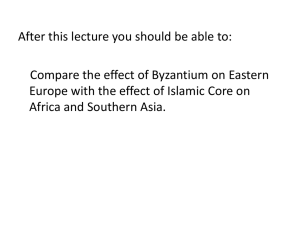
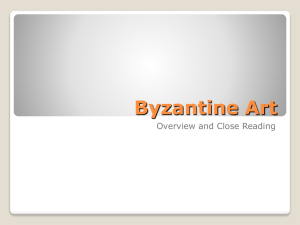
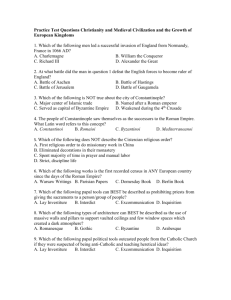

![WALKER APAH Work 1: [left] Christ as the Good Shepherd, mosaic](http://s3.studylib.net/store/data/008199063_1-917d961612a5fa9b320b28077d9ae06b-300x300.png)
